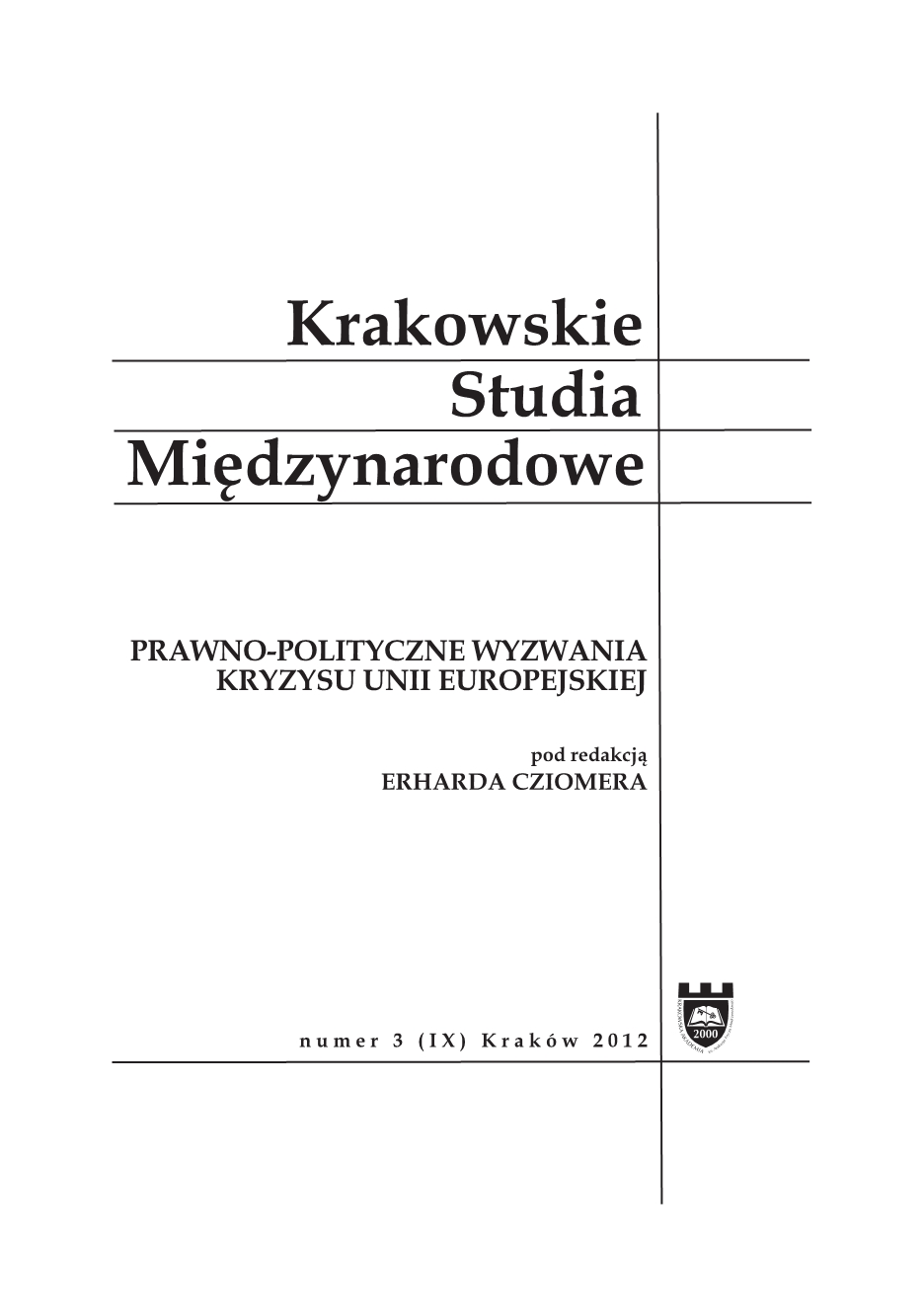Implikacje kryzysu Unii Europejskiej dla dalszego procesu integracji
Implications of the EU crisis for the further European integration process
Author(s): Mieczysław StolarczykSubject(s): Supranational / Global Economy, Economic policy, International relations/trade, EU-Accession / EU-DEvelopment, Financial Markets, Politics and Identity
Published by: Oficyna Wydawnicza KA AFM
Keywords: European integration
Summary/Abstract: The Eurozone crisis, that made its presence felt especially between 2010 and 2011, illustrated that predicating the further European integration has become more difficult than it was a few years ago. Some of its consequences are already visible in a large scale; some will assuredly be noticed in a longer term. The aim of this case study is to indicate, according to the author’s opinion, which are the most important and direct implications of the EU crisis for the further development of the European Union integration. In the first part of the article, the author outlined the most probable results of the presumptive dissolution of Eurozone. In the second part, he demonstrated that the Eurozone crisis would lead to wider integration of the Euroland. Nonetheless, this closer integration will not mean building the United States of Europe, since among the EU societies there is no agreement to transform the EU into this kind of federal structure. In the present case study the author shows that the EU crisis has strengthen the differentiated level of integration, stressed the role of Germany in the EU, weaken significantly the Common Foreign and Security Policy (CFSP), strengthen the lack of democracy in the EU, contributed to slimming the welfare state and, finally, lowered attractiveness of EU model of integration.
Journal: Krakowskie Studia Międzynarodowe
- Issue Year: IX/2012
- Issue No: 3
- Page Range: 39-61
- Page Count: 23
- Language: Polish

